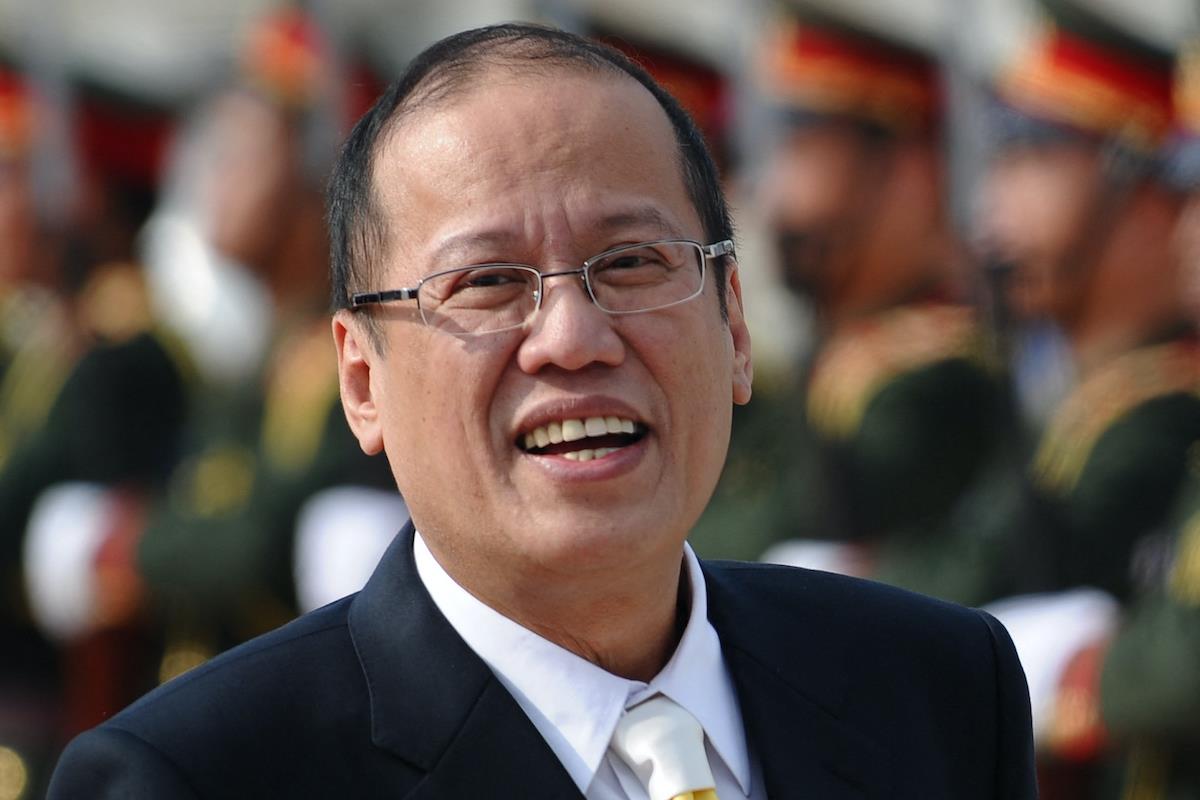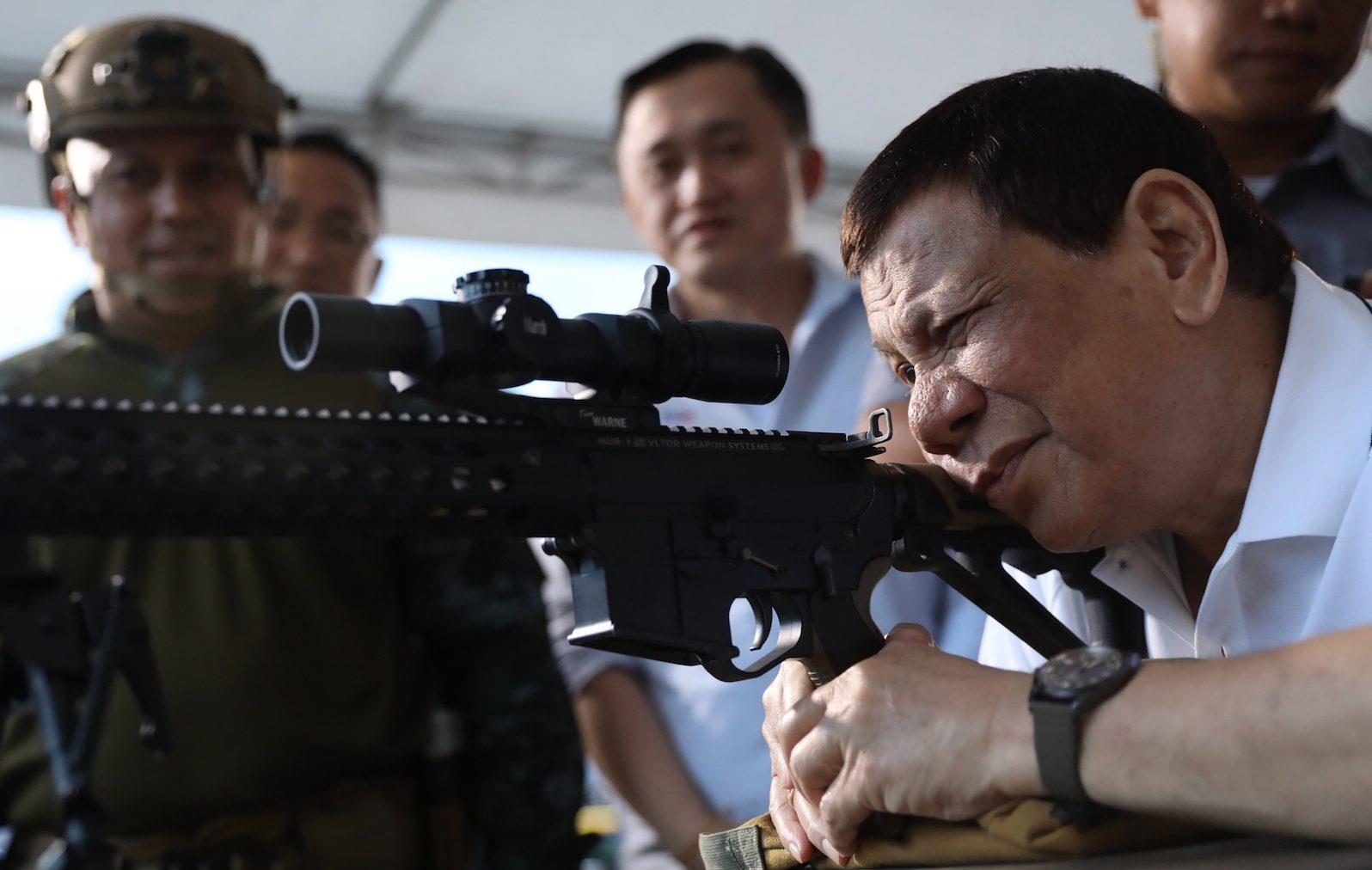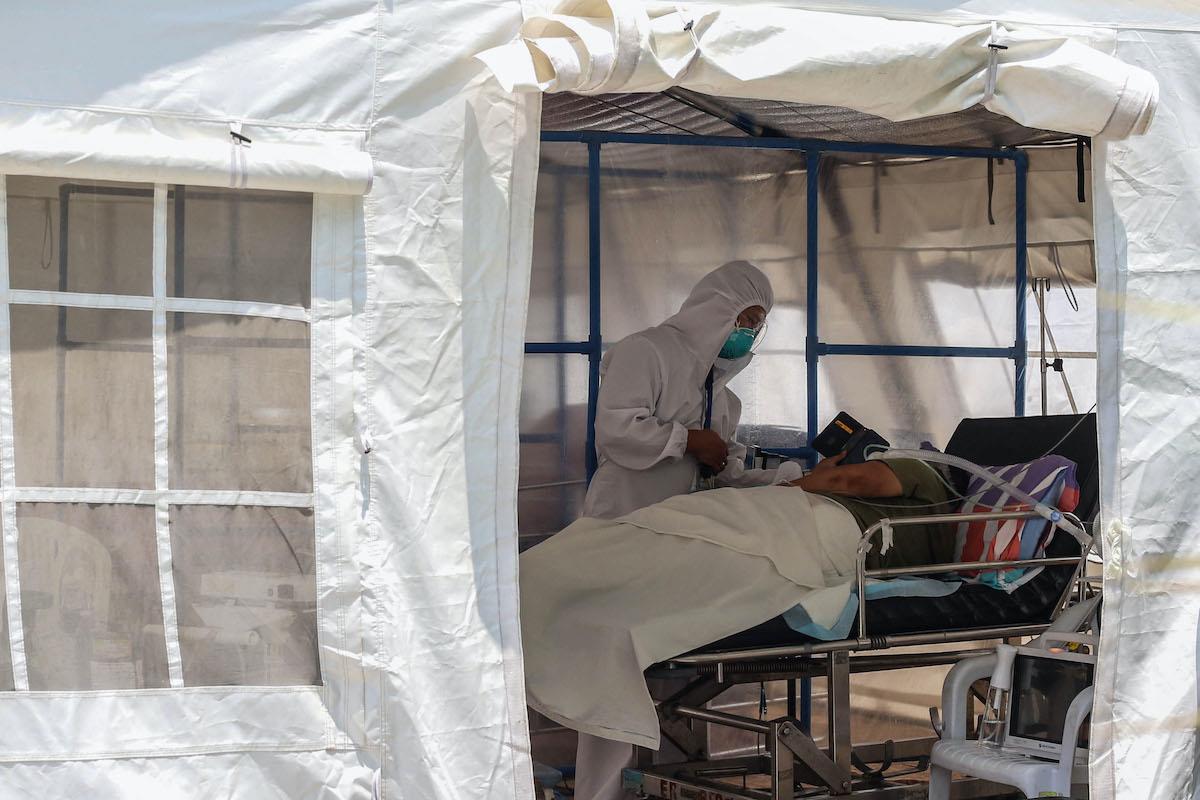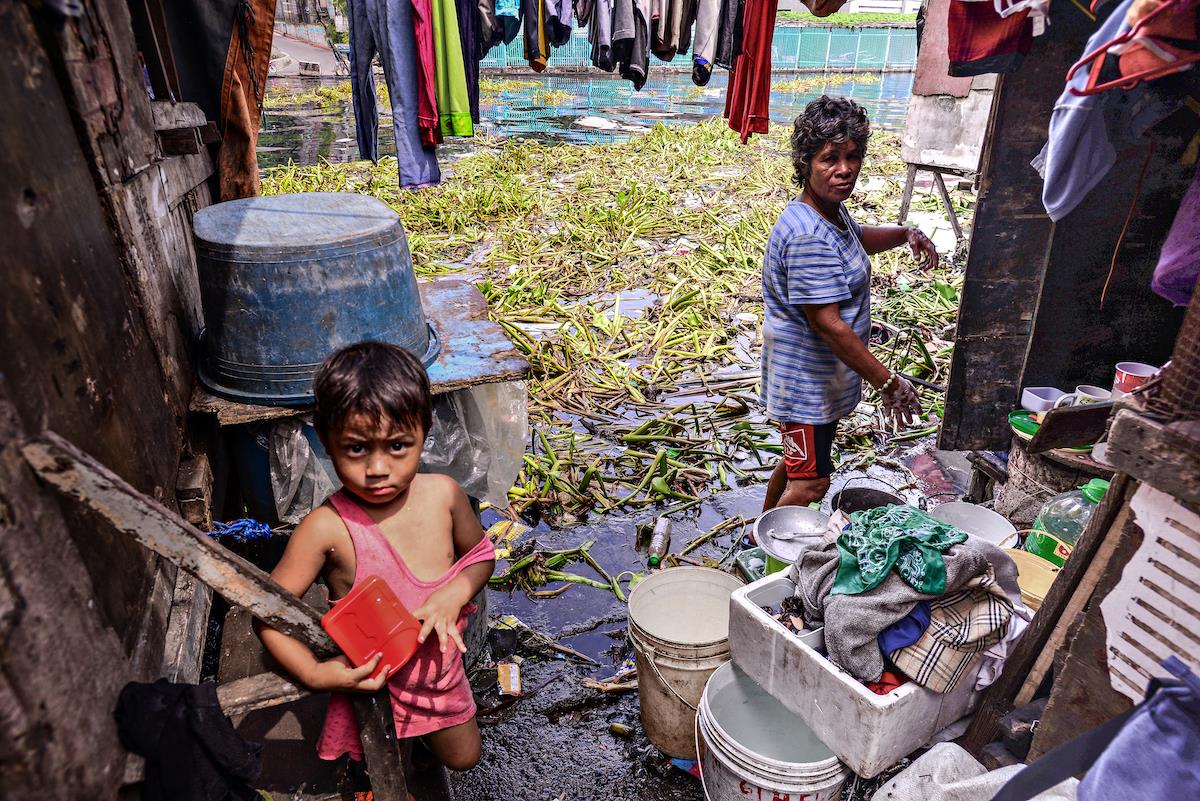(MENAFN- Asia Times) Anyone still bummed that Game of Thrones has run its course on television might want to switch channels to the Philippines.
There, you'll find more family kingdoms battling for supremacy than one can follow. None matters more, of course, than the Duterte clan, which has the upper hand at keeping the throne in next year's election.
And that is to the detriment of an already embattled economy.
The Duterte Dynasty? One of Rodrigo Duterte's central appeals back in 2016, when he was elected president, was that he didn't hail from a dynasty. Duterte won on the perceived strength of 22 years ruling the southern city of Davao, rather than who his father, mother or grandparents were.
Yet Duterte is now angling to create his own dominion.
After he was elected to a six-year term the only one he can serve as president – his daughter Sara Duterte secured dad's former mayoral job. Now there's talk of Duterte Jr. running for president in May 2022, while dad shoots for vice president (each office is voted on separately).
Naturally, many think it's a ploy not just to extent President Duterte's reign. But it could also help him avoid accountability for the spree of extrajudicial killings that have the Philippines in the crosshairs of human-rights groups.
“It shows a clear mockery of our constitution and democratic process,” warns opposition coalition 1Sambayan.“Obviously, this is driven by fear of accountability both from the International Criminal Court and from our own justice system.”
Respecting political guardrails isn't Duterte's thing. And while daughter Sara insists a Duterte-Duterte administration isn't the script, few pundits believe her.

Former President Benigno Aquino worked hard to dismantle the kleptocratic system of the Ferdinand Marcos dynasty: Photo: AFP
Turning the Philippines into a family business is the last thing the Southeast Asian nation needs. Or being labeled a rogue state, for that matter.
On Monday, Investigate PH, an independent human rights group, urged the United Nations to hold Duterte's government accountable for the deaths of thousands of Filipinos thought to be involved in the drug trade.
Yet the biggest risk of a Duterte-Duterte era from 2022 to 2028 – or longer, some fear – is to the Philippine economy. As VP, Duterte Sr. would exert great, if not complete, influence. It would mean more economic backsliding that the poverty-stricken country can scarcely afford.
Dynasties versus reformers “Merely blaming the pandemic for the bad economic performance in the end is clearly too simplistic,” says economist Ronald Mendoza at Ateneo School of Government. Covid-19, he notes,“exposed a glaring gap in the administration's reforms.”
Duterte was elected to turbocharge the reform drive instituted by predecessor Benigno Aquino. From 2010 to 2016, Aquino worked early and often to dismantle the kleptocratic system that the Ferdinand Marcos dynasty created between the 1960s and 1980s.
During the 2000s, the Macapagal clan was back. The daughter of 1960s President Diosdado Pangan Macapagal, Gloria Arroyo, won the throne – until her arrest on plunder charges.
Right out of the gate in 2010, Aquino attacked corruption, increased accountability and transparency, policed tax cheats to strengthen the national balance sheet and challenged the powerful Catholic Church's meddling on population control. Aquino won Manila its first-ever investment-grade ratings.
By 2016, the Philippines was producing China-like growth rates. The one-time“Sick Man of Asia” was an investment darling.

President Duterte fires a few rounds with a sniper rifle during the opening ceremony of the National Special Weapons and Tactics Challenge in Davao City. Photo: AFP / Presidential Photo Division
Granted: Aquino, too, descended from a dynasty of sorts. After his politician father was assassinated in 1983 trying to unseat Marcos, his mother, Corazon Aquino, was elected president in 1986.
The millennial Benigno Aquino, though, shook up the status quo rather than enriching himself as he moved the Philippines at long last out of the Marcos era.
Dirty Dutertenomics Unfortunately, Duterte has rested on those laurels.
Aided by a synchronized global expansion – a rare occurrence – Duterte pivoted away from painstaking economic reforms to a war of choice on the drug trade. Many Southeast Asian peers face such challenges, yet Duterte's government made the drug war its raison d'être.
It also put speed over the good-governance movement Aquino had championed. Whereas Aquino's checks, balances and sustainability imperatives slowed giant infrastructure projects, Duterte prioritized haste over transparency.
Aquino favored a public-private partnership model for investment. Duterte reverted to the old model of government-led financing, bringing back the opacity and over-borrowing risks that in the pre-Aquino era landed Manila on the junk-rating tables.
The cost of this backsliding is worsening graft.
Aquino bequeathed Duterte a 95th ranking on Transparency International's corruption perceptions index. Today, Manila is 115th . Duterte has already forfeited half of the improvement on Aquino's watch; Aquino had inherited a 134th place ranking.
This tragic decline owes much to Duterte putting political expediency over efforts to clean up government. Many investors who'd rediscovered the Philippines are again keeping their distance. Put together with Duterte's dismal handling of the Covid-19 pandemic, pundits can't help but worry about where the Philippines might be in 2028 and beyond if the Duterte clan retains the throne.
Duterte's governmental dysfunction has set back living standards amid the pandemic.

A relative wearing personal protective equipment attends to a family member with Covid at a makeshift ward in a hospital in Manila. Photo: AFP / Jam Sta Rosa
“Especially during the pandemic, hunger has been very widespread, and malnutrition is very badly affecting children,” says Peter Murphy, coordinator of Investigate PH coordinator and chair of the International Coalition for Human Rights in the Philippines.“That's before we even talk about that many of them don't have schools to go to.”
Between now and May, the worry is that the legislative process will be stuck in neutral as politicians jockey for power.
“The question now,” says ING Bank economist Nicholas Mapa,“is whether political dealings will delay this process as the polls are now less than a year away.”
Fitch Ratings recently revised Manila's credit outlook to“negative,” a clear and present threat to the Philippines' hard-won investment-grade status.
“The Philippine economy has been hit particularly hard by the Covid-19 pandemic and contracted by 9.6% in 2020,” notes Fitch analyst Sagarika Chandra.“The pace of economic recovery in 2021 has been set back by new highly transmissible variants and targeted mobility restrictions.”
Politics are clouding the outlook.
“Presidential elections scheduled for May 2022 create some uncertainty around the post-election fiscal and economic strategy,” Chandra says. In general, she says, Fitch“assumes broad policy continuity will be maintained.”
Yet even continuity might be worrisome. Case in point: Duterte's low-energy response to the pandemic.

The poverty-stricken country can scarcely afford more economic backsliding. Photo: AFP / Maria Tan
As Marisa Di Natale of Moody's Analytics points out,“the Philippines is the laggard of the region with daily new Covid-19 cases still near a record high, continued quarantines in Greater Manila, and only modest fiscal spending to support domestic spending and well-being.”
Dirty politics Now, electioneering is getting in the way, too. In 2016,“Duterte started his presidential run with a whole lot of drama, and it looks like he will be leaving us the same way – trying to confuse us,” says opposition Senator Risa Hontiveros.
And if Duterte's daughter really does decide not to run for president, Ferdinand Marcos Jr. is always waiting in the wings. The former senator and son of the late dictator hoped to serve as Rodrigo Duterte's vice president back in 2016.
Though Marcos lost that election, Duterte has spent the last five years working to rehabilitate the Marcos name. He also angled to maneuver Ferdinand Marcos Jr. into the No. 2 job even after the election.
Early in his term, he gave Marcos Sr. a posthumous hero's burial . Duterte's support for the family dynasty that drove the Philippines into poverty and dysfunction has long mystified political pundits.
The end result, though, is that the system Aquino tried to eradicate is getting a reprieve at the worst possible moment.
Winter could, indeed, be coming. And that would likely as bad for Manila's human-rights standing as its credit rating.
MENAFN15092021000159011032ID1102800501